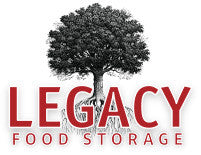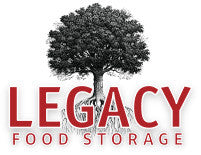
False Security: Being Prepared in Theory
Mark stood in his basement, surrounded by all the emergency supplies he purchased. Stacked shelves held freeze-dried food, water storage, first aid kits, and the latest survival tools. His friends joked about it, but he felt confident in his carefully chosen emergency supply purchases. He was ready to take care of his wife and the twins, should something unexpected happen.
Then, the storm hit. This wasn’t the average one he'd prepared for, but a Category 4 hurricane that knocked out power across three states, created a ton of damage, and flooded his neighborhood.
As water seeped into his basement, Mark fumbled with his emergency generator. Despite owning it for two years, he'd never actually started it after the store demonstration. It seemed easy enough to remember at the time. His hands trembled as he pulled the cord repeatedly, each attempt more desperate than the last, stress building by the minute. Why did it not work? The instruction manual was somewhere, but he could not remember exactly where he had stored it.
Upstairs, his water filter sat in its original packaging, still sealed with factory tape. His family watched him as he struggled to assemble it. The unfamiliar parts were a bit confusing while working in the dark, lit only by the small flashlight he could find quickly. He stored much of his high-end tactical lights somewhere on the basement shelves but that would take time to sort through it.
It was in that moment of truth that Mark realized a painful lesson: having supplies was not the same as actually being ready.
There is a common but dangerous misconception that simply acquiring gear equals being prepared. As an emergency supply company, we hear stories like this quite often. Equipment not working, broken or missing parts, not being able to find them, or just never got to filling up those water tanks. Keep in mind, being truly ready means more than just collecting supplies. Below are some actions you can take to ensure you have the confidence and skills when you need it the most.
Knowledge is a Must
Having the latest gear sitting in your closet provides a false sense of security if you lack the knowledge to use it effectively. Emergency situations rarely go according to plan, and your expensive equipment becomes worthless without the practice and skills to use it in an urgent or stressful situation.
Test it.
Set up that tent. Take the multi-tool out of the shiny new package and use it. Assemble the item to make sure all the parts are there. During an emergency is not the time to be reaching out to the company to ask for replacements or filing a warranty claim.
Remember to also test in a variety of conditions. Emergency situations don't wait for ideal weather or ensure you are safe at home. Your gear and skills must function in rain, snow, extreme heat, darkness, and high-stress situations. Planning and practicing in various conditions help you discover any weaknesses in equipment or technique. This allows you to find a solution to overcome any obstacle ahead of time.
Make Time to Practice
Preparedness isn't something you can just buy. It evolves with consistent practice and training. The time invested in practicing, assembling, and maintaining skills is extremely valuable. Having familiarity and practice instills confidence which helps tremendously in stressful situations versus the first time you opened the box or plugged it in.
Ensure Complete Systems
Regular inventory checks prevent the discovery of critical missing parts during an emergency. Every purchase should be regularly updated and verified for completeness, from spare parts to power sources to ensure it is complete and in a usable condition. Example: A medical kit without key capabilities or a radio without batteries becomes useless if needed.
Use It or Lose It
Skills weaken without regular practice. Muscle memory and technical knowledge fade over time, potentially leaving you struggling through critical tasks during emergencies. Consistent training maintains proficiency and builds confidence.
Simplicity and Effectiveness
Complex equipment can fail at critical moments. The most reliable solutions are typically the simplest ones with fewer potential failure points. When evaluating gear, prioritize reliability and ease of use over flashy features or push-button actions that might fail under stress.
Maintenance Matters
Even the high-quality gear deteriorates without proper care. Learning how to maintain, repair, and protect your equipment ensures it will function when needed most. This includes regular inspections, proper storage, and being able to troubleshoot common issues.
Regular Rotation of Consumables
Supplies with expiration dates require systematic rotation. Food, medications, batteries, and fuel degrade over time. Establish a schedule to verify dates and replace items before they expire, integrating consumables into your regular use to minimize waste.
Build a Preparedness Community
Individual preparation has its limits. Develop relationships with like-minded individuals to create a network of complementary skills and resources. No one person can master every necessary skill, but a community with diverse expertise becomes remarkably resilient during an emergency.
Adaptability
No amount of preparation can anticipate every scenario. The most valuable skill is adaptability or being able to improvise solutions with the available resources. This flexibility of mind comes from diverse practice scenarios that challenge your problem-solving abilities.
Mental Preparedness Matters
The psychological component of emergency response is often overlooked. Stress management techniques, decision-making under pressure, and maintaining calm during chaos are skills that require deliberate development. Physical and mental practice prevents panic and enables clear thinking when it matters most.
Document and Share
Create reference materials for equipment and procedures. Written guides, checklists, and diagrams serve as valuable refreshers during high-stress situations. Sharing this knowledge with family members ensures everyone understands the planned emergency actions and steps. You might not always be there to lead.
It’s not all about stuff. True preparedness is an ongoing process, not a shopping list. While quality equipment provides the tools you’ll need to succeed, your knowledge, adaptability, and practice determine whether you'll navigate emergencies successfully. Put in time, practice regularly, and focus on building competence and confidence to go along with all that great gear!
Tags
- All
- 25 year food
- 25 year shelf life food
- 72 hour kit
- Best food storage types
- Best long-term food storage
- Blizzard preparedness
- Budgeting
- canning
- Certified GMO-free Emergency foods
- Certified GMO-free foods
- Coffee
- Comparison of emergency food methods
- Composting tips
- Dangers of genetically modified foods
- dehydrated food
- Edible Wild Plants
- emergcy preparedness
- Emergency Cooking
- Emergency Food
- Emergency food Christmas gifts
- emergency food storage
- Emergency Food Supply
- Emergency food supply recommendations
- Emergency Planning
- Emergency Preparedness
- Emergency preparedness advice
- emergency preparednesss
- Emergency Supplies
- Emergency supplies checklist
- Emergency Survival
- emergency survival gear
- Emergency survival kit checklist
- Emergency Survival skills
- exercise
- Family emergency preparedness
- Family emergency preparedness plan
- Family Preparedness
- Food Storage
- Food storage 25 year shelf life
- Food storage amounts
- Food storage Christmas
- Food storage containers long term
- Food Storage Secrets
- Food storage serving size
- Food storage types compared
- freeze dried food
- Freeze dried food storage
- freeze dried meats
- Freeze-dried emergency food storage
- Fruit Trees
- Gardening
- Getting Started
- Gluten-free food Storage
- Gourmet emergency food
- Healthy food storage
- How much emergency food to store
- Improved emergency preparedness
- Jared Markin
- Jared Matkin
- Legacy Premium
- Lessons learned from Hurricane Sandy
- Lessons learned from natural disasters
- long-term food storage
- Long-term Food Storage Guidelines
- Long-term Food Storage tips
- Long-term water storage
- Mental Emergency Preparedness
- Mental toughness
- Money-saving tips
- Natural disaster planning
- Natural Disasters
- Perfect Christmas gifts
- Pet Emergency preparedness checklist
- Pet Emergency preparedness kit
- Pet Emergency Survival tips
- Pets and Emergency Preparedness
- Plant Foraging
- portable solar panels
- portable solar power
- portable water filters
- protein drinks
- Risk of genetic modification
- Seed saving and storage
- Seed saving guide
- Self-reliance
- Self-reliant practices
- Shelf Life
- Solar Cooking
- Solar Ovens
- Special Dietary needs
- Stranded in a car in a blizzard
- Survival food
- Survival Gear
- survival kit
- Survival kits
- Survival Ovens
- Survival Skills
- survivalist gear
- suvival kit
- Tree Pruning tips
- Tree Trimming basics
- unique ideas
- water bottle with filter
- water filter
- water filter straw
- water filters
- Water Filtration
- water pitcher with filter
- water pitchers with filters
- Water purification
- Wild Food Foraging
- Winter composting
- Winter driving
- Winter preparedness tips
- Winter storm preparedness tips
- Winter Survival







